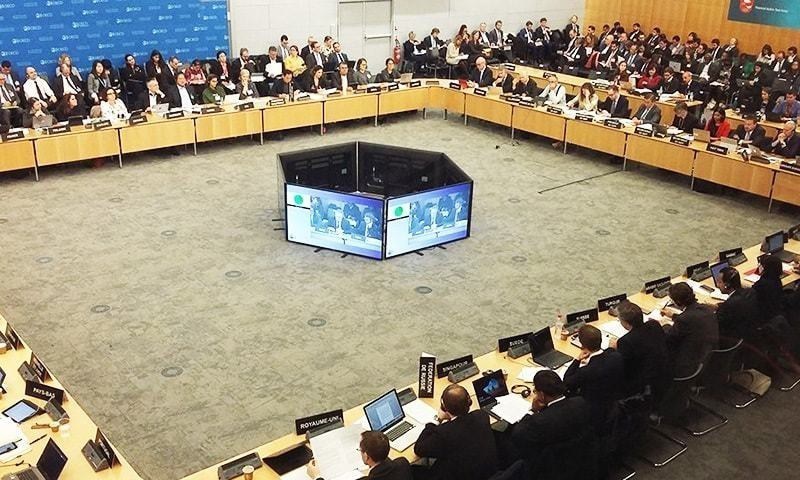ISLAMABAD: With Pakistan set to submit a compliance report to the Financial Action Task Force (FATF) next month, the government has approved new measures aimed to prevent the country from being included in its ‘black list’.
The decisions about the measures were taken at a recent meeting of the National Executive Committee (NEC) that was chaired by Finance Minister Asad Umar.
Explore: FATF — Charities marked for leaks
The committee reviewed the progress made on the FATF Action Plan, which was aimed at preventing suspected militants from operating bank accounts or using illegal means to transfer money, including hundi, hawala and smuggling of currency through sea, air or land routes.
On the occasion, officials of the National Counter Terrorism Authority (Nacta) gave a detailed presentation on Terrorist Financing Risk Assessment that was prepared by Nacta and the Federal Investigation Agency (FIA) in consultation with a number of organisations concerned, including provincial departments. It was decided that Nacta would finalise the assessment report and submit it again to the NEC members many of whom had sought details about various aspects of the report, mainly related to issues involving policy and legislation.
However, the Risk Assessment Report on cash smuggling prepared by the Federal Board of Revenue and Customs was termed satisfactory by the committee. Apart from the FIA officials posted at airports, seaports and land crossings, those of the Customs department are responsible to stop smuggling of currency, including by people.
About the possible misuse of the banking channel, the Financial Monitoring Unit (FMU) of the finance ministry presented an analysis of reports on suspicious transactions filed by banks in the last three years and the steps taken against money laundering and terrorism financing on the basis of such reports.
Based on the recommendations made by FATF, an intergovernmental body was formed to coordinate anti-money laundering and countering financing of terrorism (AML/CFT) efforts.
The NEC was informed that Securities and Exchange Commission of Pakistan (SECP) had amended the Intermediaries (Registration) Regulations, 2017. The Anti-Money Laundering Act, 2010 places compliance obligations on the service providers (intermediaries) to conduct due diligence and report suspicious transactions to the FMU. The amendment will help trace and contain suspicious transfer of money through various modes of investment, including stock markets.
The SECP informed the NEC that after the amendments and issuance of an SRO on December 14 the intermediaries would have to ensure that their clients were not involved in suspicious activities, implying money laundering or terrorism financing, and that the client was not on the United Nations Security Council’s list of designated persons or entities linked to terrorist financing or against whom a ban, sanction or embargo existed.
Published in Dawn, December 20th, 2018














































